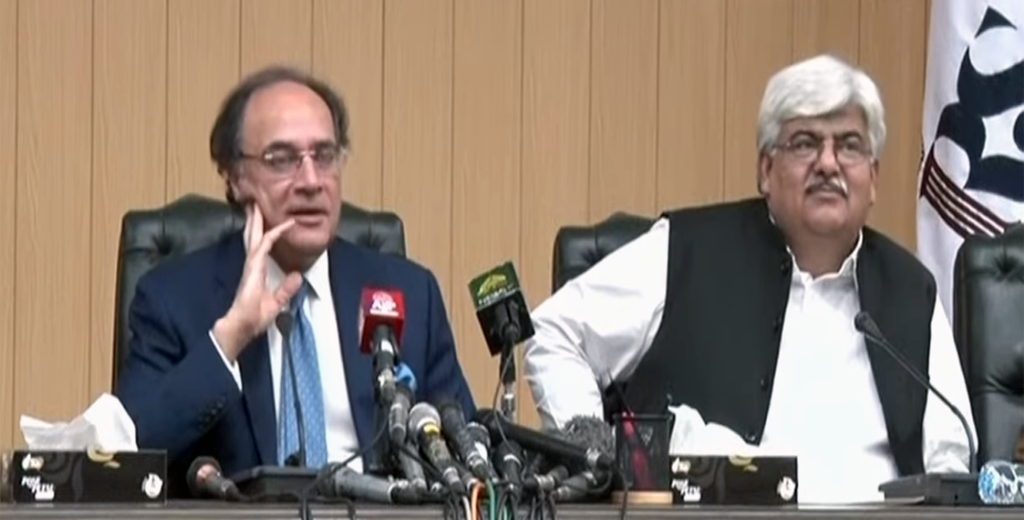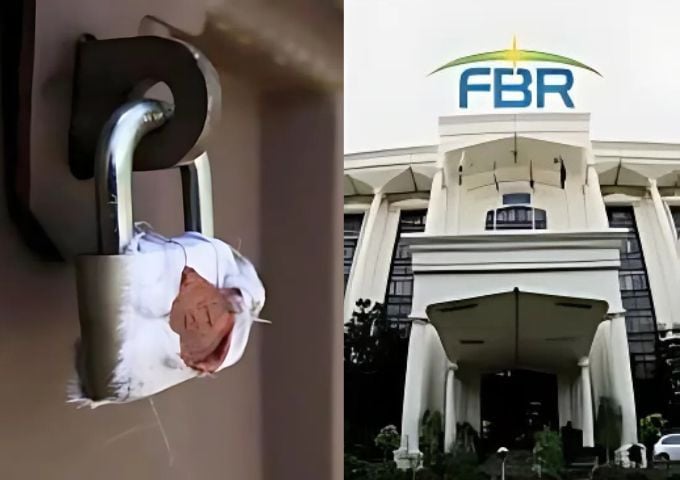PTBP Web Desk
The federal cabinet has officially designated the Federal Board of Revenue (FBR)’s infrastructure as critical under the Prevention of Electronic Crimes Act (PECA) 2016. This decision, made on the recommendation of the Revenue Division, aims to protect FBR’s sensitive data against cyberattacks, including hacking and unlawful interventions.
According to an announcement from the Prime Minister’s Office, this measure will strengthen FBR’s cybersecurity framework and safeguard critical tax-related data. Officials highlighted that the decision will play a vital role in shielding the FBR’s operations from potential threats, ensuring smooth functionality without cyber disruptions.
This move follows a significant data breach over two years ago when tax records of the then Chief of Army Staff (COAS) General Qamar Javed Bajwa’s family were leaked. The leaked records accused his family of acquiring assets worth Rs12.7 billion during his tenure, raising concerns about data security within FBR’s systems.
The cabinet also approved an extension of temporary operating permits for Fly Dubai, enabling weekly flights from Lahore and Islamabad to Dubai. The extension will last from January 4, 2025, to February 3, 2025, ensuring uninterrupted connectivity for travelers.
The Ministry of Maritime Affairs briefed the cabinet on plans to boost public sector imports and exports through Gwadar Port. From March 2024 onward, 11 federal ministries will facilitate operations through this strategic port.
Prime Minister Shehbaz Sharif directed all relevant ministries to provide detailed reports for a comprehensive briefing. He emphasized that 60% of public sector imports and exports should be conducted through Gwadar Port, enhancing its role as a hub for economic activity.
In a significant step towards digital transformation, the Ministry of Information Technology and Telecommunication informed the cabinet about the large-scale implementation of the e-Office system.
Starting January 1, 2025, communication between federal ministries and divisions will become paperless, with all file movements and correspondence conducted electronically. Currently, e-Office has been fully implemented in 21 ministries and divisions, significantly reducing paperwork and processing time.
This digital initiative is expected to save both time and resources, benefiting the national exchequer by cutting costs on stationery and fuel. The processing time for summaries at the Prime Minister’s Office has already decreased to a maximum of three days.
The cabinet granted an exemption under Section 21-A of the Public Procurement Regulatory Authority Ordinance to purchase refurbished Chromebooks for schools and colleges. This decision aims to enhance digital learning in educational institutions.
To ensure transparency, Prime Minister Sharif directed that a third-party audit be conducted to evaluate the purchase process.
The cabinet approved the signing of a Memorandum of Understanding (MoU) between Pakistan’s Board of Investment and China’s Shandong Ruyi Group for establishing textile parks. This partnership is expected to promote industrial growth and attract foreign investment.
Additionally, another MoU was greenlit between the Foreign Service Academy of Pakistan and the Diplomatic Academy of Serbia’s Ministry of Foreign Affairs, fostering diplomatic cooperation and training.
The federal cabinet reviewed recommendations from the Cabinet Committee on Private Hajj Operators Court Cases. It approved the continuation of 46 private Hajj operators to manage the 2025 Hajj arrangements while instructing authorities to formulate a comprehensive new Hajj policy for upcoming years.
Steps will also be taken to conclude all pending legal cases related to private Hajj operators to streamline the process.
Finally, the cabinet validated decisions from the Cabinet Committee on Legislative Cases meetings held on December 31, 2024, and January 1, 2025, reflecting the government’s commitment to legislative consistency.




